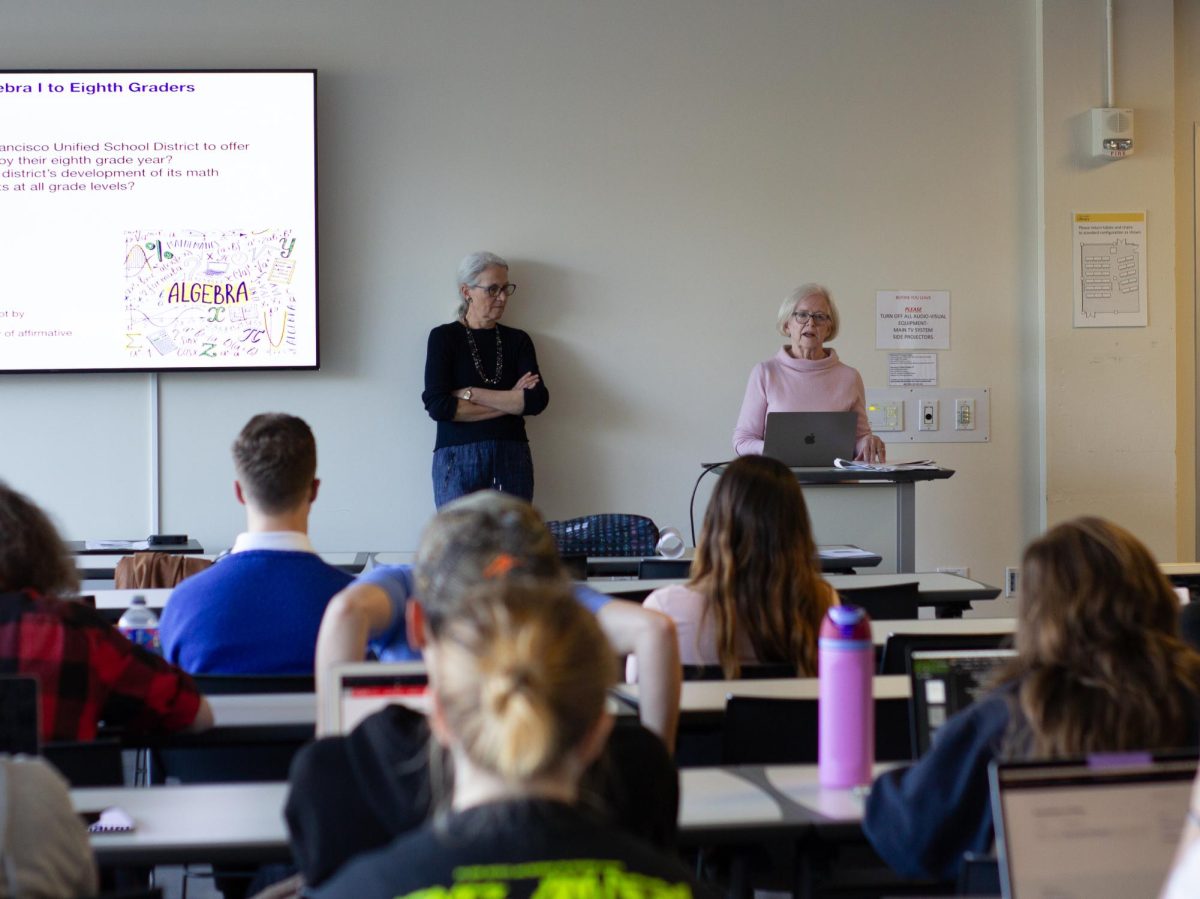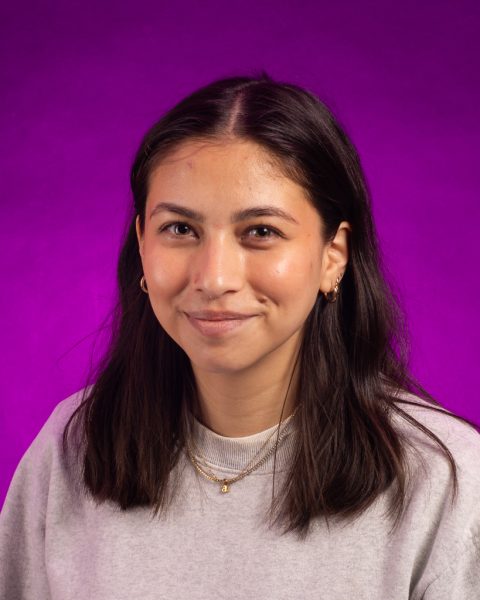Ahead of the impending March 5 primary elections, three librarians from San Francisco State University hosted an event to explain the propositions on the 2024 ballot at J. Paul Leonard Library on Feb. 26.
SFSU librarians Mira Foster, Melanie Smith and Charlotte Von De Bur invited volunteers from the League of Women Voters of San Francisco and the San Francisco Department of Elections to speak at Ballot Talk. An event where two nonpartisan organizations provided voter instruction.
Smith, a first-year experience librarian, pulled out her ballot and flipped through its pages, understanding the lack of voter education.
“This is huge,” Smith said. “There’s just so much information here and it is legit hard to be a responsibly informed voter in this world right now.”
Smith said that the J. Paul Leonard Library took an interest in hosting the event because the goal of every library is to help people navigate information.
Michelle Moritz, one of the League of Women Voters speakers, explained each proposition on the ballot and what supporters versus opponents have to say about them.
Moritz said the proposition that stumps people most is Proposition B, titled “Police Officer Staffing Levels Conditioned on Future Tax Funding.”
The proposition poses the question of whether the city should alter its charter budget for the number of police officers employed in the previous year. The initiative attempts to keep the number of police officers lower, ensuring that there is always funding at that level.
Moritz said that the community could vote to approve the proposition on March 5, but the funding for it would have to be voted on in a future election, in a new tax metric, making it confusing to vote beforehand.
Another proposition that many attendees were confused about was Proposition G, titled “Offering Algebra 1 to Eighth Graders”. This would incentivize the San Francisco Unified School District to offer Algebra 1 to students by 8th grade.
“I think the [proposition] about algebra has people scratching their heads too,” Moritz said. Like, why are we voting on this when we’re not educational professionals and it doesn’t come with any teeth anyway?”
Nina Pierremont, a fourth-year communications student, felt that SFSU students should be aware of Proposition G because affected students could one day attend San Francisco State.
“I think that proposition was very enlightening to hear and would benefit a lot of students just to know,” Pierremont said.
Pierremont, who attended the event on behalf of the Institute for Civic and Community Engagement, said the department is rolling out new methods to increase student voter engagement.
“We’re just trying to put as much information out there as we can, and we’re starting to launch our Instagram, socials and our website to just grow student civic engagement and voting,” Pierremont said.
Gator Votes is a nonpartisan ICCE-led program that will continue to share information on the primary and general elections.
Adriana Falcon, the speaker for the SF Department of Elections, said that civic engagement is an act of building community that she encourages the SFSU campus to participate in.
“Get the word out — it’s really hard to go through all these measures, so make it fun,” Falcon said. “Make it a little party and hang out with someone; get some wine, get some popcorn and go through the ballots.”









Alice • Feb 28, 2024 at 2:03 pm
“We’re not educational professionals.” Wat?